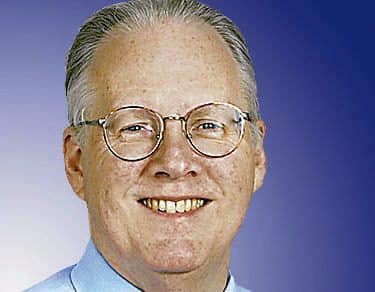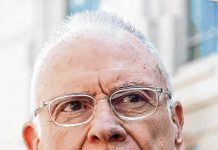I have been signed up as an organ donor ever since Indiana began allowing residents to so declare on their driver’s licenses. To date, I have not donated, and frankly, I hope that day is a long time coming.
But I am also starting to wonder, considering my age and physical condition, whether upon my death doctors will find any part of me left worth donating. Are fingernail transplants a thing? I might be good for that.
When that day comes — remember, a long time from now — I sincerely hope they find part or parts of me that are just what someone in need has been waiting for. For while I have yet to be a donor, I was recently the beneficiary of two other donors.
Several years ago, during a routine eye exam, my optometrist told me I had the early stages of something called Fuchs (rhymes with kooks) dystrophy, a condition where the cells that regulate the amount of moisture in the cornea stop doing their job. As the condition progresses and more of these cells stop working, the cornea retains too much moisture and swells, which causes blurry vision.
I was getting along fairly well until last April, when I had cataract surgery. Instead of the bright new world I had heard so many post-cataract folks describe, my vision was suddenly like looking through frosted glass.
At my post-surgery visit with my optometrist, she asked, “Didn’t your doctor tell you that cataract surgery can cause Fuchs to get much worse?” No. No, he did not.
I had voluntarily made myself half blind. Great.
Fortunately there is a fix, cornea transplant surgery. Fuchs affects only a thin layer of cells on the back of the cornea. How thin? Well, the cornea is about the thickness of a credit card and this layer of cells makes up about 1/20th of that thickness.
My optometrist referred me to a cornea specialist in Indianapolis who has pioneered a new type of surgery that replaces only that back layer of cells instead of the whole cornea. Nearly half his patients come from out of state. Some come from places as far away as Dubai and Russia. I felt lucky to be just an hour away.
Two short procedures later and the frosted glass was suddenly clear again. I’m about two months out and doing great.
It is not lost on me that two people I didn’t know had to die for these two precious layers of working cells to be available for my surgeon to insert into my faulty eyes and make them well again.
I am also conscious every day that for the rest of my life I will carry parts of two strangers with me. Two people who, like me, signed up to be organ donors, perhaps never thinking much about it.
Before my situation, when I thought of organ donation, I often thought of hearts and kidneys and maybe even lungs. These are all important organs that mean the difference between life and death.
While my life was never in danger, my quality of life certainly was. Without the transplants I might have gone totally blind. No more driving, reading or most importantly, seeing the faces of my loved ones. But two small grafts, each only one cell thick, restored my vision.
I am eternally grateful to my surgeon for his expertise and my two donors who allowed him to work his magic.
If you are not currently signed up to be an organ donor, I hope you will reconsider. Like me, you might feel your body has passed its “sell by” date and nobody could use your heart, kidneys or whatever.
But I’m living proof that just one layer of cells on the back of your cornea could be the difference between sight and blindness for someone.
I am telling everyone in my family that when I die, I want them to let the doctors know that they are welcome to any part of me that might prove helpful to someone else … even my fingernails.
Doug Showalter is a former special publications editor at The Republic. He can be reached at [email protected].




